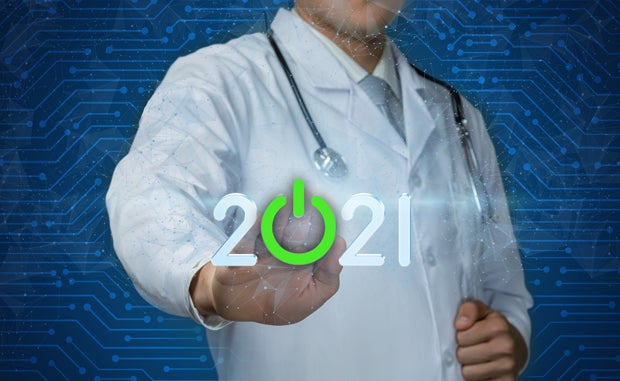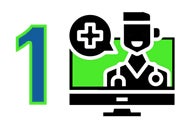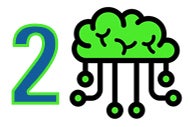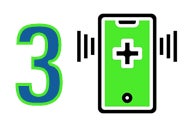

How the Health Care Landscape Will Change in 2021

While it’s been difficult this year to predict what the next month will bring for health care, a few longer-term impacts are much clearer, including how digital health will continue to be transformed.
Here are three predictions for 2021 by health care thought leaders:
 Hybrid Models Will Bring Systemwide Virtualization
Hybrid Models Will Bring Systemwide Virtualization
In a recent report, Boston Consulting Group (BCG) leaders say they expect further growth in virtual visits and believe Medicare will move to permanently expand telehealth coverage, which will lead other payers to follow suit. Telehealth will expand beyond a quick diagnostic tool to become more integrated into patient care. As providers become more comfortable with digital tools, they will integrate them more closely into their workflows, which will translate into systemwide virtualization of hospitals.
As this occurs, care models will need to shift. Claus Jensen, chief digital officer and chief technology officer at Memorial Sloan Kettering Cancer Center in New York City believes a hybrid care model will deliver integrated care and surveillance across inpatient, outpatient and at-home settings. This will remove friction and make access to care easier by integrating medical records, points of care, logistics and more, and help create meaningful relationships with patients while they are healthy, based on knowledge and guidance.
Health care’s digital front door will widen, many experts believe, as consumers buy into expanded telehealth services, thanks to their positive early experiences with virtual visits during the pandemic. By the end of next year, more than one-third of patients will access care through their provider organization’s digital front door.
 AI Will Show an Impact in Disease Detection
AI Will Show an Impact in Disease Detection
Expect an uptick in the use of artificial intelligence across many disease areas, particularly to assist in early disease detection, BGC officials say. One study involving patients at risk for stroke used AI algorithms based on symptoms and genetic history to place them in an early-detection stage. Also, AI may soon cross the threshold of drug discovery by helping to identify drug targets, molecules within data libraries and suggest chemical modifications.
AI and physicians will work together seamlessly to automate the diagnoses and management of common conditions based on real-time data analysis, digital biomarkers and at-home tests. Doctors will use their expertise to manage more complex cases and virtual visits with their patients, while patients will be able to reach their AI coach or doctor’s avatar 24/7 for counseling, emotional and psychological support, and access fully automated prescription preparation, refills and deliveries. It is expected that the efficiency will be welcomed by payers, biopharma, providers and med tech companies.
 Health Care Will Become More Decentralized as Patients Access Care Outside Their Communities
Health Care Will Become More Decentralized as Patients Access Care Outside Their Communities
Fueled by apps that offer health tracking and coaching, virtual consultations and tailored treatment plans, health care will become more decentralized. With the widespread adoption of telemedicine, BGC officials say, patients’ reliance on nearby hospitals and provider groups will become less relevant in the consultation process. Easy-to-adopt, plug-and-play solutions will level the playing field for all doctors, including small practices, and large technology infrastructures will not be required as often.



